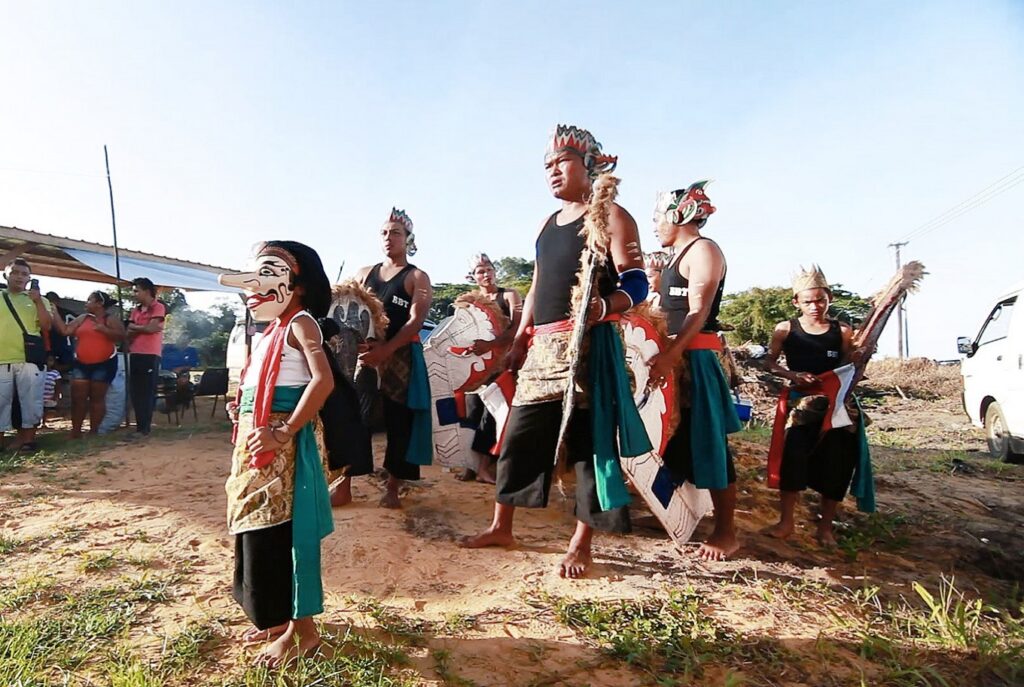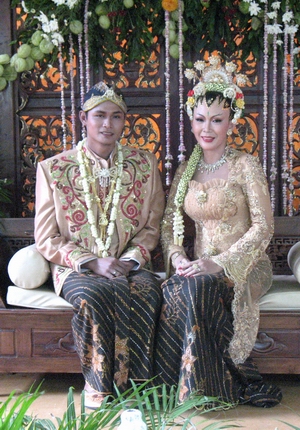Suriname, a small yet culturally vibrant country in South America, is home to a thriving Javanese community that is rich in history and traditions. In this article, we take a closer look at the Javanese community in Suriname, shedding light on their unique cultural practices and contributions to the country’s society. From their rich culinary heritage to their distinctive art forms, the Javanese community in Suriname has played an integral role in shaping the country’s diverse identity. Join us as we explore the fascinating world of Suriname’s Javanese community and discover the tapestry of customs that has been woven over the centuries.
History of Javanese Immigration to Suriname
Indentured Labor Period
The history of Javanese immigration to Suriname dates back to the 19th century when Dutch colonialists sought laborers for their plantations in South America. From 1890 to 1930, around 34,000 Javanese men and women were transported to Suriname as indentured laborers. These individuals, known as “coolies,” were promised a better life and the opportunity to escape poverty in their homeland of Java, which was facing economic hardships under Dutch colonial rule.
Conditions for the Javanese laborers in Suriname were harsh and exploitative. They were subjected to long hours of work, low wages, and inadequate living conditions. Many succumbed to diseases and malnutrition, and their life expectancy was significantly lower than that of the European plantation owners. Despite these challenges, the Javanese immigrants managed to create a vibrant community, preserving their cultural heritage in the face of adversity.
Post-Indenture Period
The indentured labor period came to an end in 1930, but the Javanese community in Suriname continued to grow through natural population growth. During this post-indenture period, many Javanese turned to agriculture and established their own small-scale farms. They contributed to the development of rice cultivation in Suriname, which soon became a staple of the local economy.
Despite being free from the hardships of indentured labor, the Javanese community still faced discrimination and marginalization. They were often relegated to the lowest rungs of society and faced limited opportunities for economic advancement and social mobility. Nonetheless, they managed to preserve their cultural traditions and pass them down to future generations.
Effects of Immigration on Surinamese Society
The immigration of Javanese laborers had a profound impact on Surinamese society as a whole. The Javanese culture brought with it rich traditions, customs, and beliefs that significantly influenced the multicultural fabric of Suriname. The fusion of Javanese, African, Creole, and Indian cultures in Suriname gave rise to a unique cultural identity that continues to shape the country to this day.
The Javanese community’s contributions to Surinamese society have been significant and diverse. Not only have they enriched Suriname’s cultural heritage, but they have also made notable contributions to the fields of politics, education, business, and the arts. Today, the Javanese community is an integral part of Surinamese society, with its cultural contributions celebrated and recognized.
Cultural Heritage and Identity
Javanese Language and Literature
The Javanese language plays a crucial role in maintaining the cultural heritage and identity of the Javanese community in Suriname. While Dutch is the official language, many Javanese continue to speak Javanese at home and within their community. The Javanese language embodies the rich oral and written traditions of Javanese literature, which includes epic poems, folk tales, and historical narratives.
Efforts to preserve and promote the Javanese language in Suriname have been significant. Various language programs and initiatives, both within schools and community organizations, aim to ensure the continuity of the language among younger generations. It is through the Javanese language that cultural values, traditions, and stories are passed down from one generation to the next, fostering a strong sense of identity.
Traditional Music and Dance
Music and dance are essential expressions of Javanese culture. Surinamese Javanese embrace traditional Javanese music, such as gamelan ensembles and wayang performances. These art forms are deeply rooted in religious and cultural festivities and serve as powerful markers of ethnic identity.
Traditional Javanese dance, characterized by graceful movements and ornate costumes, is also celebrated within the Surinamese Javanese community. Dance performances showcase various themes, including historical narratives, mythological tales, and everyday life. These artistic expressions are not only a form of entertainment but also a way to preserve and showcase the unique cultural heritage of the Javanese community in Suriname.
Cuisine and Food Culture
Javanese cuisine holds a special place in the culinary landscape of Suriname. The blending of Javanese, Indian, African, and Creole influences has resulted in a distinct Surinamese-Javanese culinary tradition. Traditional Javanese dishes, such as nasi goreng (fried rice), bami (fried noodles), and sambal (spicy condiment), have become beloved staples among Surinamese people of all backgrounds.
Food plays a central role in Javanese culture, whether it be daily meals or festive occasions. Special dishes are prepared for religious ceremonies, weddings, and other important events, reflecting the Javanese community’s emphasis on hospitality and communal bonding. Javanese food not only satisfies the taste buds but also serves as a link to ancestral customs and traditions.
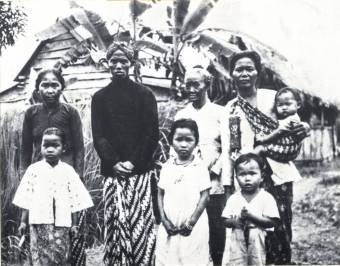
Religion and Beliefs
Islam in the Javanese Community
The majority of the Javanese community in Suriname practices Islam, brought to the region by the Javanese immigrants during the indentured labor period. Islam plays a significant role in shaping the religious and cultural identity of the Javanese in Suriname. Mosques serve as community centers, where Javanese Muslims gather for prayer, social events, and religious education.
Islamic customs, including Ramadan fasting, Eid celebrations, and Islamic weddings, are observed with great enthusiasm within the Javanese community. These religious practices serve as markers of identity, fostering a sense of unity and belonging among the community members. Islam has not only provided spiritual solace and guidance but also serves as a thread that connects the Javanese community to its roots in Java.
Syncretism with Hinduism and Christianity
While Islam is the predominant religion among the Javanese community, there is also a significant presence of Hindu and Christian beliefs. Over time, syncretism between Islam and Hinduism has emerged, resulting in unique religious practices and rituals. For instance, Javanese Muslims often incorporate elements of Hindu rituals, such as offerings and ancestor veneration, into their religious ceremonies.
Similarly, some Javanese individuals have converted to Christianity, especially during the post-indenture period. This religious diversity within the Javanese community in Suriname is a testament to the adaptability and openness of the Javanese people to embrace different faiths while preserving their distinct cultural identity.
Traditional Beliefs and Practices
In addition to the influence of Islam, Hinduism, and Christianity, the Javanese community in Suriname also preserves its traditional beliefs and practices. These beliefs often center around animism and ancestor veneration. Various rituals and ceremonies are performed to honor the spirits of ancestors and seek their guidance and protection.
Javanese traditional beliefs and practices are deeply intertwined with daily life and are passed down through generations. They serve as a reminder of the Javanese cultural heritage and provide a sense of continuity and connection to their roots. These traditional beliefs and practices have survived despite the challenges of time, demonstrating the resilience and perseverance of the Javanese community in preserving their cultural identity.
Education and Language
Access to Education
Access to education has been a crucial factor in the social advancement and empowerment of the Javanese community in Suriname. During the early years of Javanese immigration, educational opportunities were limited, and many Javanese children did not have access to formal education. However, over time, efforts were made to address this disparity, leading to increased access to education for Javanese children.
Public schools were established within Javanese villages, providing basic education to Javanese children. Educational attainment among the Javanese community gradually improved, leading to better opportunities for social mobility and economic advancement. Today, the Javanese community in Suriname continues to prioritize education as a means of empowerment and progress.
Importance of Javanese Language
The Javanese language holds immense cultural significance within the Javanese community in Suriname. It serves as a vehicle for preserving and transmitting cultural knowledge, customs, and values. The continued use of the Javanese language fosters a strong sense of identity and belonging among community members.
Recognizing the importance of the Javanese language, there have been initiatives to incorporate Javanese language and culture into the curriculum of schools. Bilingual education programs have been implemented to ensure that younger generations have the opportunity to learn and appreciate their native language and cultural heritage.
Bilingual Education Initiatives
Bilingual education initiatives have played a vital role in promoting the Javanese language and cultural identity among the younger generation in Suriname. These programs aim to create a supportive learning environment where students can develop proficiency in both Dutch and Javanese.
Bilingual education not only enables students to communicate effectively with their Javanese-speaking family members but also strengthens their connection to their cultural roots. By embracing the Javanese language alongside Dutch, students gain a deeper understanding of their heritage and cultivate a sense of pride in their cultural identity. Bilingual education initiatives have been instrumental in preserving and revitalizing the Javanese language and culture in Suriname.
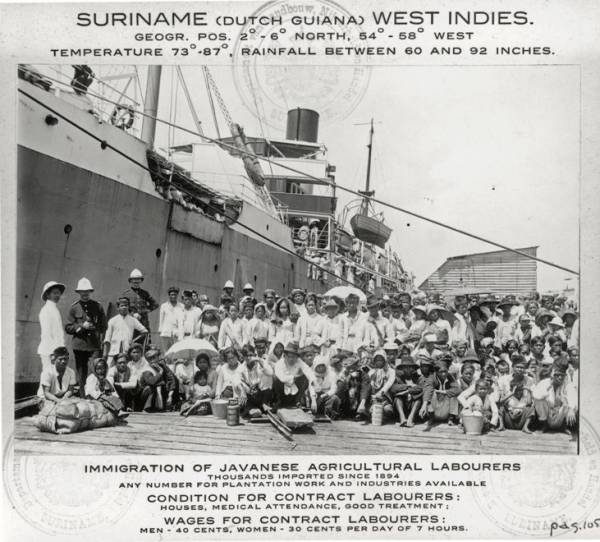
Social Structure and Family Life
Extended Family System
The Javanese community in Suriname maintains a strong sense of familial ties and places great importance on the extended family system. The extended family, often consisting of multiple generations living together or in close proximity, provides a support network for its members. The elderly are respected and play a significant role in the upbringing of grandchildren, while siblings and cousins form lasting bonds.
The extended family serves as a source of emotional and financial support, particularly during times of celebration or hardship. It also serves as an avenue for preserving Javanese customs and traditions, as family members come together to celebrate festivals, perform religious rituals, and pass down cultural knowledge to younger generations. The extended family system plays a vital role in maintaining the cohesion and resilience of the Javanese community in Suriname.
Gender Roles and Expectations
Traditional gender roles and expectations continue to influence the social structure and family life within the Javanese community in Suriname. While progress has been made towards greater gender equality, certain traditional roles and expectations, particularly regarding household responsibilities and caregiving, persist.
Historically, women were primarily responsible for domestic tasks, such as cooking, cleaning, and childcare, while men assumed the role of breadwinners. However, in recent years, there has been a shift towards more balanced gender roles, with increasing numbers of Javanese women pursuing education, careers, and leadership positions.
The Javanese community values and respects the contributions of both men and women, and gender dynamics are evolving as societal attitudes change. However, certain cultural expectations regarding marriage and family influence gender roles, highlighting the complex interplay between cultural heritage and societal progress.
Community Support Networks
Community support networks are integral to the social fabric of the Javanese community in Suriname. These networks provide a sense of belonging and social cohesion, fostering unity and solidarity within the community. From religious organizations to cultural associations, various community groups offer support, services, and opportunities for engagement.
Community support networks play a crucial role in preserving and promoting Javanese cultural heritage. They organize cultural events, language programs, and celebrations that bring the community together. Moreover, these networks provide avenues for advocacy, addressing the needs and concerns of the Javanese community at local, national, and international levels.
Political Participation and Influence
Javanese Politicians in Suriname
The Javanese community in Suriname has made notable contributions to the political landscape of the country. Javanese politicians have emerged as influential figures, representing their community’s interests and advocating for their rights. Through their political involvement, Javanese politicians have played a pivotal role in shaping policies, addressing social issues, and promoting inclusivity.
The rise of Javanese politicians in Suriname is a testament to the community’s resilience and determination to have a voice in the decision-making processes of the country. Their political participation has not only increased representation for the Javanese community but also contributed to the overall diversity and inclusivity of Surinamese politics.
Political Organizations and Movements
Political organizations and movements within the Javanese community have played a vital role in advancing the interests and well-being of the community. These organizations bring together like-minded individuals, fostering a sense of unity and collective action. They address issues ranging from social inequality to cultural preservation, advocating for policies that benefit the Javanese community and Surinamese society as a whole.
These organizations and movements have been instrumental in raising awareness about the challenges faced by the Javanese community and mobilizing support for community-driven initiatives. By providing a platform for political engagement, they empower Javanese individuals to actively participate in the democratic processes of the country and shape their own future.
Representation in Government
The Javanese community has achieved significant representation in Surinamese government, contributing to the country’s diverse political landscape. Javanese politicians hold positions at various levels of government, from local councils to national parliament.
The increased representation of Javanese individuals in government has resulted in policies that address the unique needs and concerns of the community. Moreover, it has helped foster a sense of belonging and inclusivity within the Javanese community, as their voices are heard and their interests are taken into account in the decision-making processes of the country.
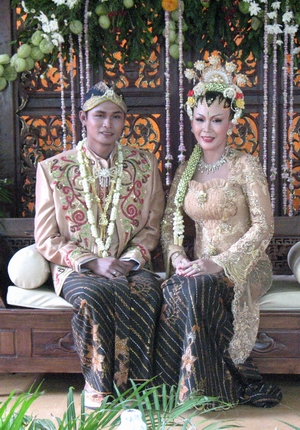
Economic Contributions and Challenges
Entrepreneurship and Small Businesses
Entrepreneurship and small businesses have been integral to the economic contributions of the Javanese community in Suriname. Many Javanese individuals have established their own businesses, ranging from grocery stores to restaurants, beauty salons to agricultural enterprises.
Small businesses have not only created employment opportunities within the Javanese community but also contributed to the local economy. Javanese entrepreneurs have demonstrated resilience and innovation, adapting to changing market conditions and societal needs. Through their businesses, they have played a significant role in fostering economic growth and stability within the Surinamese society.
Labor Participation
The Javanese community has made substantial contributions to the labor force in Suriname, particularly in agriculture and manual labor. During the post-indenture period, Javanese individuals turned to farming, cultivating rice and vegetables, which have become vital components of Suriname’s agricultural sector. Their hard work and dedication have significantly contributed to Suriname’s food security and self-sufficiency.
Additionally, Javanese individuals have been actively involved in various industries, such as construction, trade, and transportation. Their contributions to the labor force have been crucial in driving the economic development of Suriname. Despite facing challenges such as limited access to education and discriminatory practices, the Javanese community has persevered and played a significant role in the country’s economic landscape.
Economic Disparities Within the Community
While the Javanese community has made notable economic contributions to Suriname, it is important to acknowledge the disparities that exist within the community itself. Economic inequality is a persistent challenge, with some Javanese individuals facing barriers to economic opportunity and advancement.
Factors such as limited access to education, lack of capital, and discrimination in the workforce contribute to economic disparities within the Javanese community. Efforts are being made to address these challenges, including providing access to vocational training, promoting entrepreneurship, and advocating for inclusive economic policies that prioritize equitable opportunities for all members of the Javanese community.
Social Integration and Assimilation
Interethnic Relationships and Marriages
Social integration and assimilation within Surinamese society have resulted in interethnic relationships and marriages, including those involving Javanese individuals. Interethnic marriages have become increasingly common, contributing to a multicultural and diverse Surinamese society.
Interethnic relationships and marriages not only break down barriers between different ethnic groups but also foster understanding, tolerance, and cultural exchange. These relationships provide opportunities for individuals to learn from and embrace different cultures, strengthening social cohesion and integration within Surinamese society.
Javanese Festivals and Celebrations
Javanese festivals and celebrations play a significant role in social integration and cultural identity within the Javanese community in Suriname. Festivals such as Idul Fitri, which marks the end of Ramadan, and Slametan, a communal feast held to commemorate important events, bring together people from all walks of life to celebrate and enjoy Javanese traditions.
These festivals are not limited to the Javanese community but serve as cultural bridges, attracting people from different ethnicities to partake in the celebrations. By opening their doors to the wider Surinamese society, Javanese festivals promote understanding, respect, and appreciation for Javanese culture, fostering social integration and unity among diverse communities.
Integration in Surinamese Society
The Javanese community in Suriname has made significant strides in integrating into Surinamese society while maintaining a strong sense of cultural identity. The Javanese people actively participate in various aspects of Surinamese society, including education, politics, business, arts, and sports.
At the same time, the Javanese community continues to preserve and celebrate their unique cultural heritage, contributing to the multicultural fabric of Suriname. The successful integration of the Javanese community into Surinamese society serves as a testament to the country’s commitment to embracing diversity, fostering inclusivity, and recognizing the value of different cultural traditions.
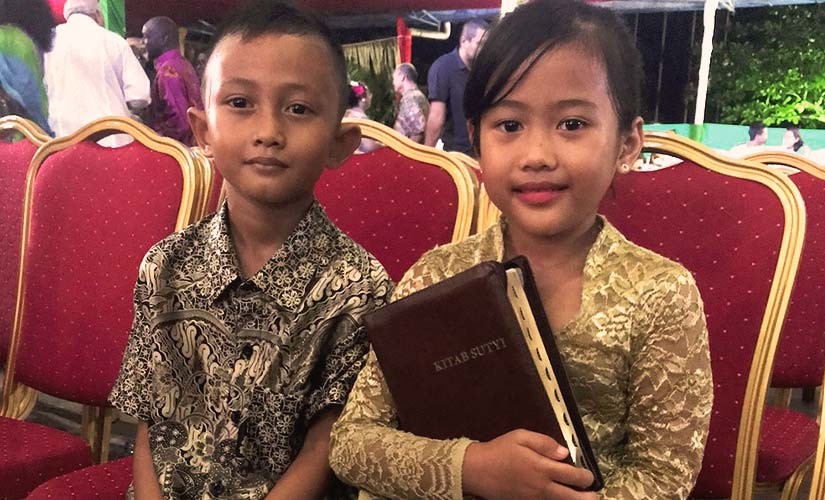
Preservation and Revitalization Efforts
Javanese Cultural Organizations
Javanese cultural organizations within Suriname play a vital role in the preservation and revitalization of Javanese cultural heritage. These organizations serve as hubs for cultural activities, language and music lessons, and community gatherings. They provide a platform for Javanese artists, scholars, and individuals to come together, exchange ideas, and safeguard the Javanese culture for future generations.
Through their activities, Javanese cultural organizations promote awareness, appreciation, and understanding of Javanese traditions and customs among the Javanese community and Surinamese society at large. Their efforts in preserving and revitalizing Javanese cultural heritage ensure that it continues to thrive and evolve in the modern context.
Language Programs and Documentation
Language programs and documentation initiatives have been crucial in preserving the Javanese language within the Surinamese context. These programs facilitate language learning and cultural education, ensuring that younger generations have the opportunity to learn and appreciate the Javanese language and its cultural significance.
In addition to language programs, documentation efforts aim to collect and preserve Javanese language resources, including books, recordings, and oral histories. These initiatives contribute to the documentation of Javanese linguistic and cultural heritage, ensuring that it is not lost to future generations.
Recognition and Protection of Heritage
Efforts are underway to recognize and protect Javanese cultural heritage within Suriname. The Surinamese government, in collaboration with the Javanese community and cultural organizations, has taken steps to safeguard and promote Javanese heritage. This includes granting official recognition to Javanese cultural events and celebrations, supporting cultural preservation projects, and establishing heritage sites.
The recognition and protection of Javanese cultural heritage not only validate the Javanese community’s contributions but also create opportunities for cultural tourism and economic development. By preserving and promoting Javanese cultural heritage, Suriname honors its multicultural roots and strengthens its identity as a diverse nation.
Challenges and Future Outlook
Generational Shifts and Cultural Preservation
As younger generations of Javanese individuals in Suriname grow up in a globalized world, preserving Javanese cultural heritage presents new challenges. The influence of Western culture, changing societal norms, and globalization may lead to a dilution of cultural practices and values.
To address this challenge, it is essential to strike a balance between preserving Javanese traditions and embracing the opportunities that come with a rapidly changing world. Intergenerational dialogue, cultural education, and digital platforms that connect Javanese individuals across borders can play a pivotal role in ensuring the continuity and vitality of Javanese cultural heritage.
Changing Societal Attitudes
Changing societal attitudes towards cultural diversity and inclusivity present both opportunities and challenges for the Javanese community in Suriname. While the country has made strides in recognizing and celebrating its multicultural heritage, there is still work to be done to combat discrimination and marginalization.
Promoting awareness and fostering respect for diverse cultures is essential to creating an inclusive society where the contributions of the Javanese community and other ethnic communities are valued and appreciated. Education, community engagement, and policy initiatives that promote cultural diversity and equal opportunities can help shape a more inclusive future for the Javanese community in Suriname.
Emerging Opportunities for the Javanese Community
Despite the challenges faced by the Javanese community in Suriname, emerging opportunities offer hope for the future. Rapid advancements in technology and communication have opened up new avenues for cultural expression, entrepreneurship, and advocacy.
The Javanese community can leverage these opportunities to further promote and preserve their cultural heritage. Online platforms, social media, and digital storytelling can help amplify Javanese voices, connect individuals across borders, and raise awareness about the richness and diversity of Javanese culture. By embracing innovation and adapting to the evolving landscape, the Javanese community can navigate the future with resilience and confidence.
In conclusion, the Javanese community in Suriname holds a unique place within the country’s multicultural fabric. From their history as indentured laborers to their contributions in various fields, the Javanese community has shaped and enriched Surinamese society. Through the preservation of language, cultural traditions, and heritage, they continue to celebrate their roots while embracing the opportunities and challenges of the modern world. The Javanese community serves as a reminder of the power of cultural diversity and the strength that comes from embracing one’s identity.
